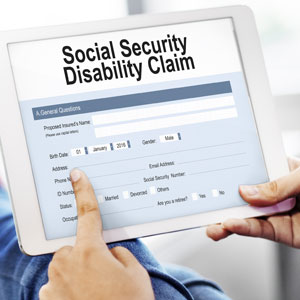Call Or Text Us Now For A Free Consultation (704) 412-4773
 Navigating the Social Security Disability (SSD) appeals process can feel overwhelming, especially when unfamiliar professionals like vocational experts are involved. But understanding who these individuals are, what they do, and how they influence your case is essential to building a strong claim. In this article, we’ll break down…
Navigating the Social Security Disability (SSD) appeals process can feel overwhelming, especially when unfamiliar professionals like vocational experts are involved. But understanding who these individuals are, what they do, and how they influence your case is essential to building a strong claim. In this article, we’ll break down…
The Social Security Administration uses vocational experts in all adult disability claims. These experts typically have backgrounds in job placement and job analysis, and their primary role is to answer technical questions for both the administrative law judge (ALJ) and the attorneys involved.
Their responsibilities include:
Generally, a vocational expert only appears during your hearing. If the judge requires more information afterward, they may submit written interrogatories to the expert. If you have an attorney, it’s unlikely you’ll need to interact directly with the vocational expert, except possibly for brief clarifications about the tasks you performed in past jobs.
It depends on the specifics of your case. While much of the vocational expert’s testimony follows a fairly predictable pattern, especially for attorneys familiar with SSD cases, the real influence comes from the questions posed to the expert. In many cases:
Though there are rare occasions when a particularly thorough vocational expert can swing things in your favor, their role tends to be more about confirming expectations than introducing surprises.
The process typically begins with the vocational expert classifying the claimant’s past work, which is usually limited to work performed within the last five years. The classification involves two main areas:
From there, the judge and the attorney pose hypothetical questions, asking how different physical or mental limitations would affect the availability of jobs. These situations may involve:
The expert’s answers help the judge determine how your documented health conditions would affect your ability to perform both past and other types of work.
An experienced SSD attorney plays a vital role in ensuring vocational expert testimony is both accurate and fair. This involves understanding the Social Security Administration’s definitions for job classifications and limitations, as well as cross-examining the vocational expert about the sources of their information.
The attorney may also challenge outdated or unrealistic job descriptions and verify the expert’s credentials, including whether they are still active in job placement or workforce analysis. They also question the source and reliability of the job numbers cited. This careful scrutiny helps prevent flawed or outdated information from harming your case.
Over the years, we’ve seen firsthand how vocational experts can significantly influence the outcome of a case, sometimes helping and other times hurting.
On the negative side, we once had a case where the vocational expert described a client’s past job using completely outdated terms, specifically referring to punch card computers, which haven’t been used in decades. That rigid interpretation shaped the judge’s view of the client’s work background in a way that didn’t reflect current realities. Fortunately, we were able to redirect the judge’s attention after the expert testified.
On the positive side, a strong vocational expert can move a case forward by acknowledging real-world limitations and avoiding inflated assumptions about a claimant’s capabilities. This is especially important in nuanced areas like hand usage, restrictions involving a dominant arm, time off-task due to medical issues, or limitations tied to focus, stamina, or interacting with coworkers.
A good expert knows what’s realistic in today’s workforce and doesn’t pretend that employers are more flexible than they actually are. That kind of credibility can make a real difference.
Still Have Questions? Ready To Get Started?
For more information on vocational expert SSD appeals in North Carolina, an initial consultation is your next best step. Get the information and legal answers you are seeking by calling (704) 412-4773 today.